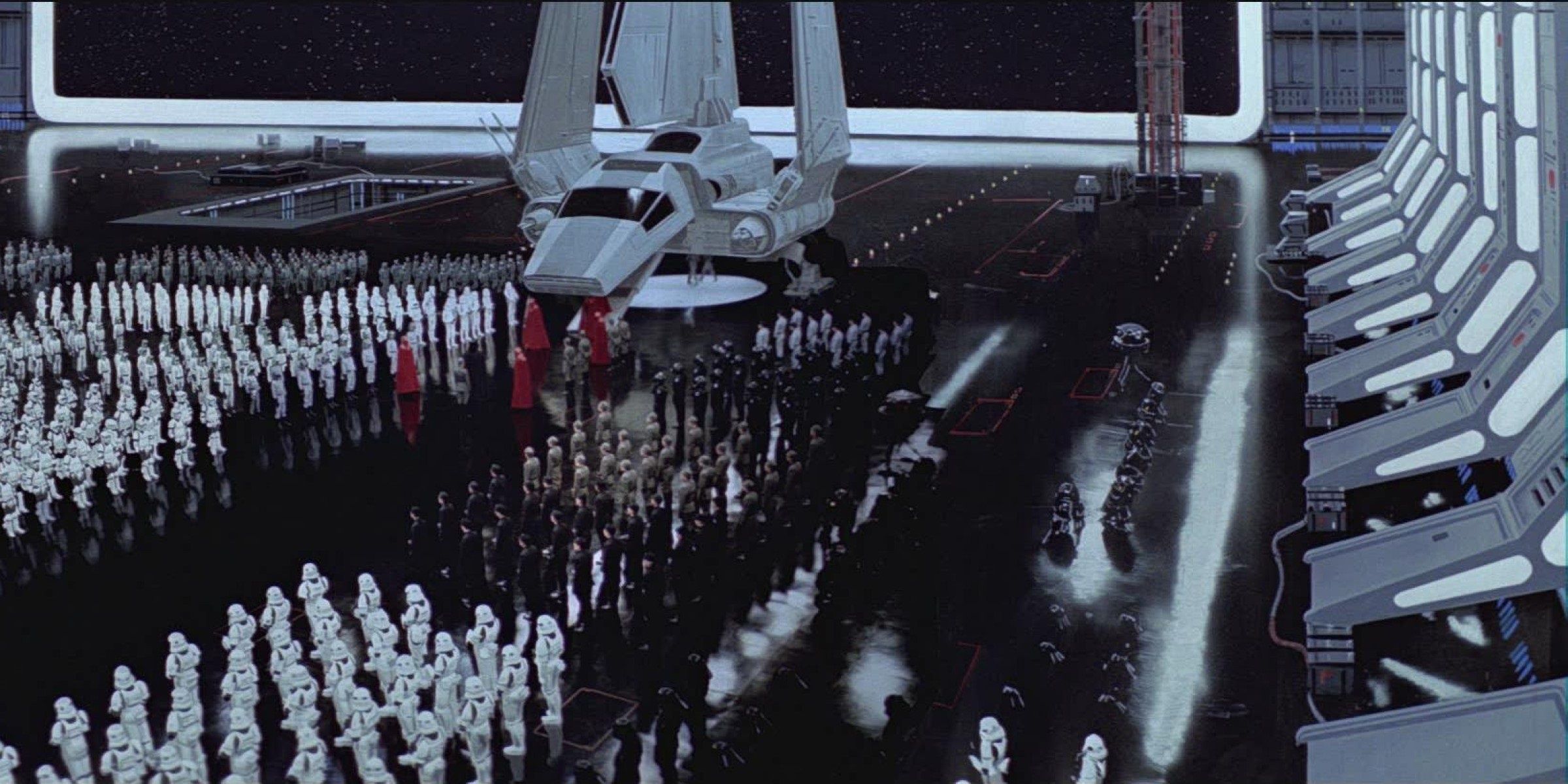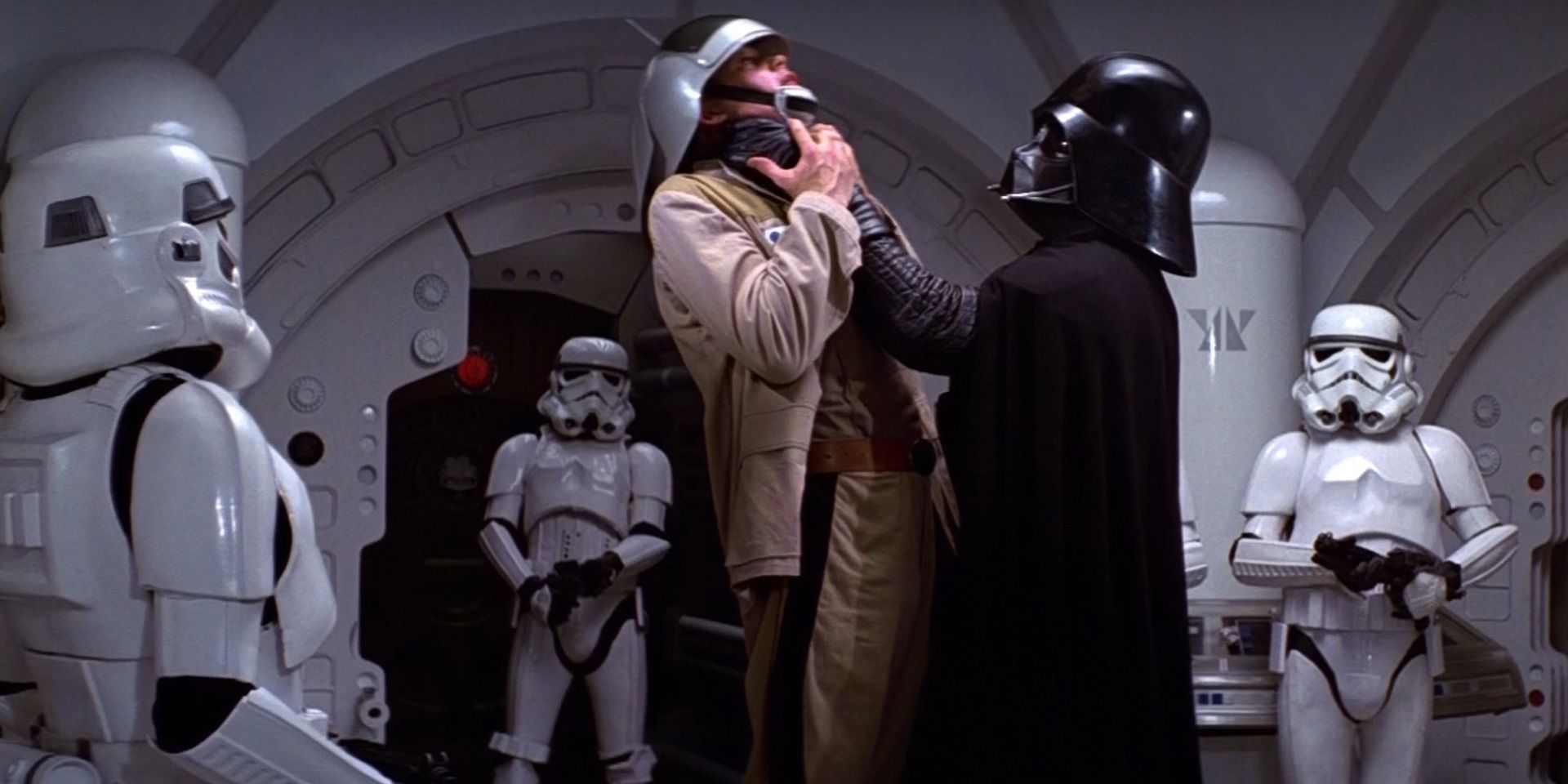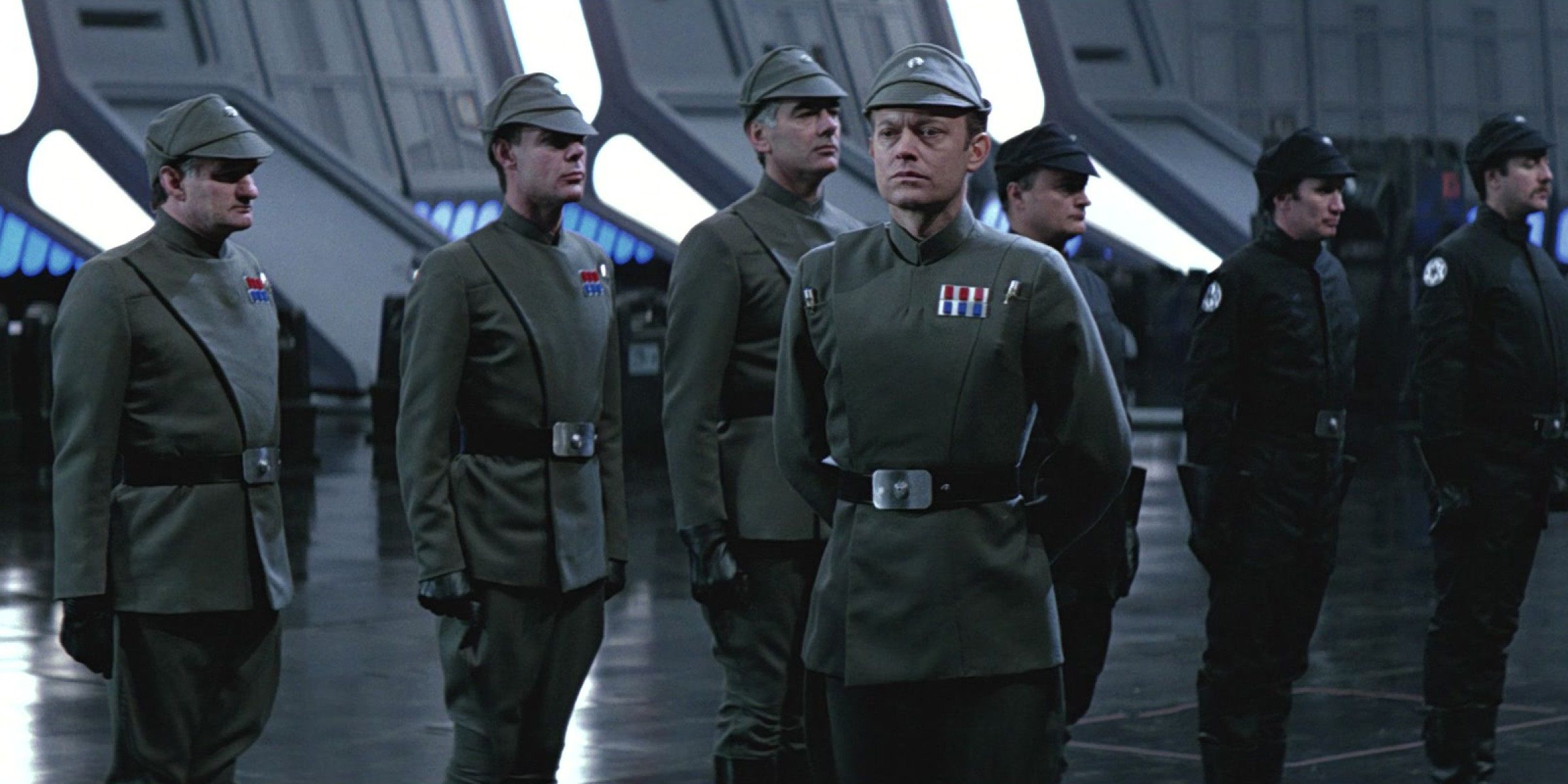Star Wars: The Empire Should Have Its Own Series | Game Rant

The original Star Wars trilogy presents a pretty cut-and-dried view of the conflict between the Rebellion and the Empire: the Empire is evil and the Rebels are heroes for blasting it out of existence. But subsequent Star Wars media has expanded the Empire significantly and revealed that, like any universe-wide skirmish between a ruthless dictatorship and a far-left militia, the Galactic Civil War is a lot more complicated than that.
With Lucasfilm seemingly hellbent on blessing its fan base with as much Star Wars streaming content as there is physically enough time and resources to produce, it should consider making a series that chronicles the Empire’s rule from the perspective of a low-level officer working his way through the ranks. Just as The Clone Wars offered an unbiased view of the best and worst of both sides of the titular conflict, a show about the Empire’s reign could offer a more forgiving portrait of the galaxy’s authoritarian overlords.
A lot of the Disney era of Star Wars has focused on the Imperial era, with both “Anthology” movies taking place at the height of the Empire’s powers and The Mandalorian detailing its immediate aftermath. But in all of those cases, their downfall was replacing originality and storytelling with shameless nostalgia-baiting. A story with a sympathetic view of the Empire – at least parts of it – would directly contradict the messages of the original trilogy and show that era from a totally new perspective, so it wouldn’t feel like nearly as much of a re-tread as The Force Awakens or Rogue One.

In the pilot episode, the protagonist (or antihero, since they’re Imperial) would sign up to join the Empire for their own reasons – maybe they’ve been fed misleading propaganda or their family’s deaths were the collateral damage of a Rebel attack – and the series would follow them up the power ladder. As they rise from rank and rank, the series would open up to cameos or even supporting roles for Imperial characters like Grand Moff Tarkin, Director Krennic, and eventually Darth Vader and the Emperor. This character could have a long, complex arc akin to TV’s greatest antiheroes Walter White and Tony Soprano, in which they either become disillusioned with the Imperial cause or make the transformation into a full-on villain. It’d be a lot more interesting to see the Empire’s motivations stripped of the original movies’ classical villainy.
With the Imperial Remnants, The Mandalorian has introduced Star Wars fans to an interesting new perspective on the Empire. In the spirit of the show’s deconstruction of George Lucas’ myths (a la revisionist westerns), The Mandalorian has shown Imperial characters with a good heart, like Migs Mayfeld, an ex-Imperial sharpshooter who’s since come to regret serving the Emperor, and evil Imperial characters who don’t realize they’re evil, like Hess touting the casualties of Operation Cinder as “heroes of the Empire.” The Imperial officer who holds Dr. Pershing at gunpoint remembers the Death Star assault, not as a triumphant victory like Star Wars fans and Rebel sympathizers do, but as a tragedy that killed millions.
Like many soldiers who served under historically evil regimes, the Imperial troops didn’t see themselves as the bad guys. Solo: A Star Wars Story showed that, while a lot of the Empire’s troops were repurposed clones from the Grand Army of the Republic, a big chunk of them were also just aimless scavengers in the galaxy who needed a purpose in life or a place to call home – like Han, whose dream was apparently to become a pilot. Not everybody affiliated with the Empire was a slimy powermonger like Tarkin or a cold, calculating military strategist like Thrawn. The vast majority of them were just regular people like Mayfeld, trying to get through their day and still be able to sleep at night.

In The Mandalorian episode “Chapter 15: The Believer,” when Mando and Mayfeld infiltrated the Imperial refinery on Morak, director Rick Famuyiwa got Star Wars fans to do something that would’ve seemed impossible: cheer for the Empire. As Mando’s blaster is out of charge and Mayfeld has to slow down to accommodate the bridge and the pirates just keep coming, hope is dwindling for the operation. And then, at the last second, a legion of Stormtroopers and a fleet of TIE fighters swoop in to save the day. This surprising moment of Empire fanfare could be the first step toward a more complex view of the conflicts in the Star Wars universe.
According to Hess, the Empire wasn’t necessarily about oppressing people; they felt they were imposing order on people who couldn’t figure it out for themselves. There’s a lot more depth to the people behind the Empire than the original trilogy’s depiction of it as the monolithic embodiment of bureaucratic oppression would suggest. A series with the same care and forward planning as The Clone Wars and The Mandalorian could really dig into this.

Post a Comment